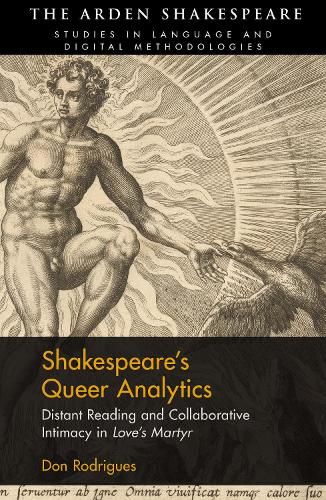Readings Newsletter
Become a Readings Member to make your shopping experience even easier.
Sign in or sign up for free!
You’re not far away from qualifying for FREE standard shipping within Australia
You’ve qualified for FREE standard shipping within Australia
The cart is loading…






What led Shakespeare to write his most cryptic poem, ‘The Phoenix and Turtle’? Could the Phoenix represent Queen Elizabeth, on the verge of death as Shakespeare wrote? Is the Earl of Essex, recently executed for treason, the Turtledove lover of the Phoenix? Questions such as these dominate scholarship of both Shakespeare’s poem and the book in which it first appeared: Robert Chester’s enigmatic collection of verse, Love’s Martyr (1601), where Shakespeare’s allegory sits next to erotic love lyrics by Ben Jonson, George Chapman and John Marston, as well as work by the much lesser-known Chester.
Don Rodrigues critiques and revises traditional computational attribution studies by integrating the insights of queer theory to a study of Love’s Martyr. A book deeply engaged in current debates in computational literary studies, it is particularly attuned to questions of non-normativity, deviation and departures from style when assessing stylistic patterns. Gathering insights from decades of computational and traditional analyses, it presents, most radically, data that supports the once-outlandish theory that Shakespeare may have had a significant hand in editing works signed by Chester. At the same time, this book insists on the fundamentally collaborative nature of production in Love’s Martyr.
Developing a compelling account of how collaborative textual production could work among early modern writers, Shakespeare’s Queer Analytics is a much-needed methodological intervention in computational attribution studies. It articulates what Rodrigues describes as ‘queer analytics’: an approach to literary analysis that joins the non-normative close reading of queer theory to the distant attention of computational literary studies - highlighting patterns that traditional readings often overlook or ignore.
$9.00 standard shipping within Australia
FREE standard shipping within Australia for orders over $100.00
Express & International shipping calculated at checkout
What led Shakespeare to write his most cryptic poem, ‘The Phoenix and Turtle’? Could the Phoenix represent Queen Elizabeth, on the verge of death as Shakespeare wrote? Is the Earl of Essex, recently executed for treason, the Turtledove lover of the Phoenix? Questions such as these dominate scholarship of both Shakespeare’s poem and the book in which it first appeared: Robert Chester’s enigmatic collection of verse, Love’s Martyr (1601), where Shakespeare’s allegory sits next to erotic love lyrics by Ben Jonson, George Chapman and John Marston, as well as work by the much lesser-known Chester.
Don Rodrigues critiques and revises traditional computational attribution studies by integrating the insights of queer theory to a study of Love’s Martyr. A book deeply engaged in current debates in computational literary studies, it is particularly attuned to questions of non-normativity, deviation and departures from style when assessing stylistic patterns. Gathering insights from decades of computational and traditional analyses, it presents, most radically, data that supports the once-outlandish theory that Shakespeare may have had a significant hand in editing works signed by Chester. At the same time, this book insists on the fundamentally collaborative nature of production in Love’s Martyr.
Developing a compelling account of how collaborative textual production could work among early modern writers, Shakespeare’s Queer Analytics is a much-needed methodological intervention in computational attribution studies. It articulates what Rodrigues describes as ‘queer analytics’: an approach to literary analysis that joins the non-normative close reading of queer theory to the distant attention of computational literary studies - highlighting patterns that traditional readings often overlook or ignore.